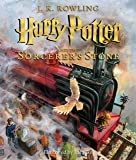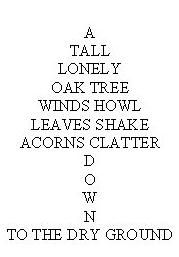 he American School of Paris is a joyful place. Faculty meetings include brie and wine. The Extension Program, where I worked, is a part of ASP and is an outreach program for French kids eager to learn English. (Or at least their parents are eager for them to learn.)
he American School of Paris is a joyful place. Faculty meetings include brie and wine. The Extension Program, where I worked, is a part of ASP and is an outreach program for French kids eager to learn English. (Or at least their parents are eager for them to learn.)

No dry pedagogy for us teachers on Wednesdays and Saturdays. We make puppets out of socks for their ease in dancing into a story. We cover matchboxes with craft paper to transform them into secret boxes of treasures: a rhinestone, a sticker, a stone. Then we tell stories about these treasures. We put on plays. And all of this with no grades. If you were to imagine a dart board, we teachers would be getting bullseyes with our pedagogy every time, unlike my performance in the French world.
REMEMBER THE FIFTH GRADE?
My class was a fortunate group of nearly bilingual students in the fifth grade. I say fortunate because first of all it was fortunate for me to have students who could both read and write. Second of all, I was exquisitely positioned to understand what it is like to be in the fifth grade, a condition which I believe is common to all expat grown-ups (if not all of us). We basically know what is going on, (until we don’t), but we, the children and the expats, sally forth in a spirit of good will and openness (for the most part).
HARRY POTTER

One Saturday, I engaged in a long day of tempting children to practice English by outright trickery. By trickery, I mean asking the students, for example, which house was the best house in the Harry Potter series, a series that was all the rage. Hufflepuff, by the way, becomes Poufsouffle. Please don’t ask me why. I have never understood this French mania for name changing in translation. Hogwarts is translated as Poudlard, which means, apparently, bacon lice. See what I mean? Here’s a link to more French / English Harry Potter gems.
https://www.buzzfeed.com/bullo/i-want-to-be-in-poufsouffle
ASIDE
The original name of the first Harry Potter book was Harry Potter and the Philosopher’s Stone. Now the philosopher’s stone is related to alchemy and the ur-stone, if you will, which will turn the other stones which touch it into gold. Too much philosophy for the American public? The first book was published in America as Harry Potter and the Sorcerer’s Stone.
Well, that Saturday, the discussion over which Harry Potter house was the best grew quite heated among the fifth graders. My daughter, who was in the class, also, fortunately in the fifth grade, and therefore the real thing, later said that we hadn’t done much that day in class. And I countered, “How about practice English in a debate setting?” French children are very reserved about speaking in English and have to be, well, persuaded. Weekly letters sent out to the parents put forward in no uncertain terms all the pedagogy going on. I should have given my daughter a copy!
A COTE DE LA PLAQUE

It must be hard for a bilingual kid to see a parent à coté de la plaque in the child’s primary language, which for her is French. Now this phrase means totally missing the dart board entirely, (as if you are in the next room, she recently elaborated. Ha ha.) That was my daughter’s view of Mommy in the French world, her primary world. But in the child’s marginal language, namely English, suddenly Mommy is super competent, at least from Mommy’s point of view, and the school who hired her, with all those teaching degrees.
Writing is the last frontier of the bilingual child: word order, vocabulary, and, let us not forget, spelling. So, I put my shoulder to the wheel to resolve this problem:

1. Shape poems, such as a bell. I never disclose this as a spelling exercise. Oh, no. It is for the beauty of expressing yourself. It is mercifully short. You draw a shape and write down a few words about that shape. We will then decorate it and hang it about the room. Meanwhile, “bell” in English is not spelled with an e at the end. Often if you can hear the final consonant in French there is an e at the end. Example: belle, which means beautiful.
We learn to pull back on those random e’s which bilingual students put at the end of many words in English as a flourish. In English, we say “carrot.” The French say une carotte. Once I was about to write “carrot” on the board in English and I suddenly didn’t remember if there were two r’s or two t’s. Has it come to this? I asked myself. No longer an English speller and never to be a French speller? Is this what dementia is like?
2. Rhyming poems. Humor is important in every language, I assure the students. And then I photocopy a few exercises for each of the long vowels. For those of you who have forgotten, a long vowel says its name. “Hat” goes to “hate”; “cut” goes to “cute”; “hop” to “hope”. You have to be very careful with this exercise and not introduce too many exceptions: “Oh,” says an eager student. “Wat” becomes “wate.” Of course, “what” does not become “wait” or “weight,” for that matter. For the word “but” to become “butte” it is complicated.
3. Short stories, too, where you tell your idea to a partner and then write it. I help fix errors, type them all up (good lord) and make a booklet.
FRUITS OF MY LABOR
Once at a dinner somebody asked my daughter how she learned to read and write in English. “Oh, she taught herself,” her father answered for her.
OUT IN LEFT FIELD

And while the Godot tramps speak proper French, this idea of them being à coté de la plaque, throwing darts at the game of life, so to speak, and missing terribly, is refreshing. The play is also saying, vous êtes à coté de la plaque; you are way off. Isn’t that our secret fear? Here, it’s like a fact of life, being à coté de la plaque, or maybe an existential given. To me, it’s something of a relief, as Beckett opens his play, “nothing can be done.” Nothing can be done about the fact that we so completely miss achieving our aims. And if you have never had this experience, you can have it through the tramps.
BOOKS
Barracoon has an interesting history. It was written by the well-known Zora Neale Hurston, author of Their Eyes Were Watching God, who was also a cultural anthropologist. Barracoon is actually an interview, not a novel. Cudjoe Lewis tells the story of his capture in West Africa and his passage to the States on the ship called the Clotilda, the last slave ship to sail with black cargo. Completed in 1931, this book did not impress the powers that be and has only recently been published.
I mention this book here, because Hurston leaves in Lewis’ broken English and yet Lewis manages to convey his harrowing and yet haunting story. As a person who struggled to acquire the dominant language in France, I can only imagine what it must have been like to go from an African language to English. Faulty English, which Hurston leaves as is, makes a very potent story. I have the book and I love how he calls Africa “Afficky.” The th‘s get rendered with a d, so we have “dey” and “dem”, which unfortunately have long been used to make fun of black speech. It really is a fascinating book.